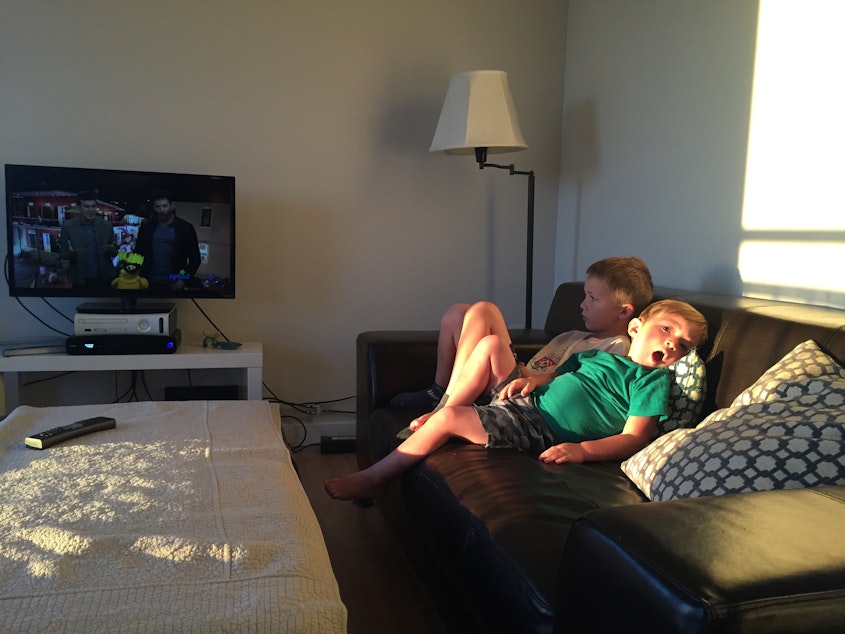Seattle changed school bell times to let teens sleep in. Here's what happened

Most teens in Seattle Public Schools get to sleep in this year - at least, relative to years past. After years of pressure from parents, teachers and sleep experts, the district flipped its bell times so that nearly all middle and high schools start at 8:45 a.m., and most elementary schools begin at 7:55 a.m. That's the opposite schedule from years past, when many elementary students didn't start until 9:30.
The changes were meant to fall more in line with children's biological clocks: To give teens, most of whom can't easily sleep before 11 p.m., the extra sleep they need in the morning, and to take advantage of early-rising young kids' prime morning learning hours.
"I’ve noticed that the mornings are a lot less stressful," said Kira Hoffman, an eighth-grader at Jane Addams Middle School. "I don’t feel super-rushed or worried about how much I’ve slept, or when I’m going to get to school, or if I’m going to be late." Once at school, Hoffman said, she also feels more focused in her first-period class.
At Whittier Elementary, performing arts teacher Steph Turner led a class in a rendition of "Good Day, Sunshine" as the children did warm-up stretches. "Last year, it felt like by the end of the day they were so tired," Turner said. "But now, with the earlier start time, they have a lot more energy, in a good way! I’ve definitely seen a change in just overall attention."
Turner is also the mom of two elementary-schoolers and says they’re adapting to the earlier start. "It’s pretty early for the teachers; I think the teachers are having the hardest time getting up that early," she laughed. "My own two children seem to be doing pretty OK."
Sponsored
Still, the new times have meant difficult changes for some family routines, like new child care strategies and less time for teens' afternoon sports practice and after-school jobs.
And some young kids like to sleep in just like teenagers do. At Angie LaFave's home, she's both the alarm clock and the snooze button for her seven-year-old son Owen, a second-grader at Whittier. On a recent morning, she leaned over his bunk and tried gently to rouse him - for the third time. It was 6:45 a.m.
"Hey bud, can you wake up, honey?" LaFave said, sotto voce. "I am," Owen murmured, his eyes still closed.
Later, as bacon sizzled in the kitchen, Owen reclined on the sofa and reminisced about his school's old 8:40 start time. "It’s really hard, ‘cause I wish that I could sleep in ‘til nine," he said.
Even for families with night-owl elementary students and tough evening schedules, the changes should eventually become easier, said Dr. Maida Chen, who directs the Pediatric Sleep Disorders Center at Seattle Children’s. And for teens, parents will likely see noticeable patterns of improvement.
Sponsored
"I would hope to see that for our older children, our teenagers and our tweeners, we’ll start to see less of what I call 'weekend binge sleeping,'" Chen said. "The reason that becomes important is because that really is a sign that their sleep is regulating, and they’re getting more adequate sleep throughout the week.”
Chen, who advocated for the bell time changes, said parents in her practice are becoming more aware of how bell times can affect child sleep habits. "Interestingly, I have already begun to see other school districts that have not changed their school start times with families saying 'hey, how come our kids aren’t getting this?' Hopefully that level of advocacy across the board will continue to rise," Chen said.
That advocacy is underway again in Seattle, because about 15 percent of elementary schools didn’t get the early start times. Keeping some bell times approximately the same as years past allowed the district keep the same number of school buses and avoid spending money on the change, which district officials said was critical.
A group of late-start parents is now challenging that decision.

